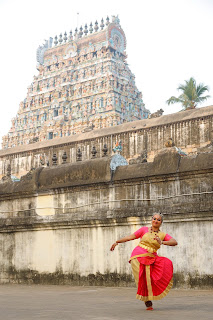Illicit
liquor claiming the lives of poor labourers in Tamil Nadu is so very par for
the course, that most can hardly be bestirred to protest. However, the
staggering scale of the recent tragedy, which took place in the village of
Karunapuram in TN’s Kallakurichi has raised eyebrows. Latest reports indicate
that the illegal sale of moonshine has claimed as many as 55 lives, with over a
100 hospitalised in critical condition. 6 women are among those dead but nobody
wants to talk about the fact that many women drink or are driven to drink by
the drunken men in their lives who beat them up and grab what little money they
have to fuel their addiction while leaving them to fend for themselves and the
children as best as they can. But that is a story for another day. Meanwhile, this
is not the first time, spurious liquor has claimed lives in TN, and if the past
is any indication, it won’t be the last.
Around this
time, last year, 416 arrests were made in Villupuram district (Kallakurichi’s
neighbour), stores of hooch were seized and a flurry of transfers were carried
out among govt. officials when 25 died and over 50 were hospitalized after
downing illegal arrack. In June 2023, PMK President – Anbumani Ramadoss demanded an
audit of liquor outlets run by the TN State Marketing Corporation Ltd. – TASMAC
(the state’s cash cow irrespective of which party comes to power) while
protesting the continuous deaths brought on by the consumption of TASMAC sold
booze and the death of a 35 – year old youth who had died in Salem district following
a bout of drinking, facilitated by TASMAC. There are similar cases, going back
over the years in TN with the usual round of protests from politicians
belonging to the opposition, the call for prohibition (which is hardly the
solution), the rounding up of shady sellers of arrack and seizure of their stashes
of the devil’s brew and the inevitable transfers to give the impression of
taking action against corrupt officials (who actively participate in and enable
this ugly business), while actually doing squat. This has been going on for
yonks now, with nothing by way of accountability or concrete action to avert a preventable evil. Which is why, one is forced to conclude that since we have chosen to turn
a blind eye to the state’s history of deaths resulting from alcohol poisoning,
we are doomed to repeat it.
This is
also symptomatic of a deeper malaise within the system where politicians as
well as well-heeled folks who don’t have to perform hard labour for pitiful
wages in order to not be able to make ends meet, are perfectly content to let
the poor and wretched remain poor and wretched. Why tsk at the Hindujas who have
been sentenced to prison, having been found guilty of exploiting domestic
workers when most in India are guilty of the exact same offense? In India, nobody
cares that too many have been condemned to die in misery below the poverty line
without access to food, clothing or shelter or that even more are denied access
to basic requirements like drinking water, 3 square meals, sanitary living environment,
electricity or quality education for their children. We would rather ignore the
poor when not judging them for drinking themselves to death, and wile away the time, looking at pics of the Ambanis' umpteenth pre –
wedding festivities.
But this
cannot be allowed to go on. Politicians who talk about prohibition and shutting
down TASMAC outlets before the elections without actually implementing any of
their promises must be pulled up for their gross negligence and officials
responsible for being a part of this godawful business must join the small fry
who have been jailed after the tragic deaths at Kallakurichi. Rehabilitation must
be provided free of cost to impoverished labourers wrestling unsuccessfully
with full-blown addiction. Fair working conditions as well as access to a
decent quality of life for all must be a level one priority as befits a
developed nation. If we continue to be wilfully uncaring of the plight of the
poor in this country, we are complicit every time a tragedy strikes them
pushing them deeper into penury and abject misery and deserve the exact same punishment
that has been handed out to the Hindujas.
















